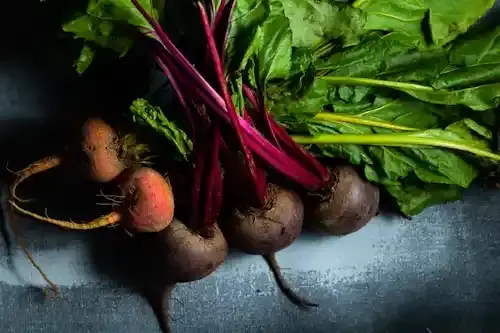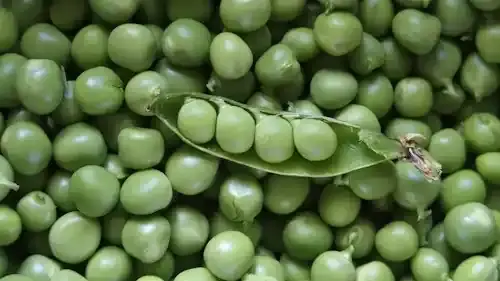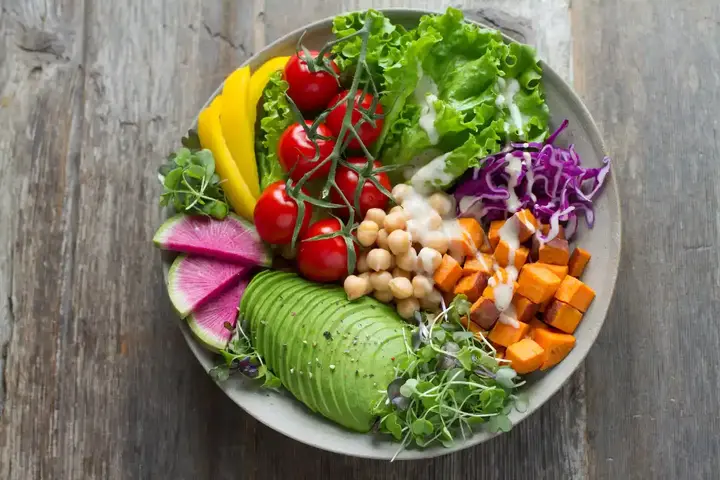8 vegetables that make you secretly gain weight
When it comes to maintaining a healthy weight, many people turn to vegetables as a great source of nutrition and as a low-calorie option. However, not all vegetables are equal when it comes to weight management. Surprisingly, there are few vegetables that can actually contribute to weight gain if consumed in excess or improperly prepared. Here are 10 vegetables that may secretly cause unwanted weight gain.
Show key points
- Some vegetables, such as white potatoes and sweet potatoes, can lead to weight gain if consumed in large quantities or prepared with high-calorie ingredients.
- Although sweet potatoes are often seen as healthier alternatives, their high carbohydrate and calorie content can still contribute to weight increase when eaten in excess.
- Carrots and beets, despite being nutrient-rich, contain natural sugars that may increase calorie intake if not eaten in moderation.
- ADVERTISEMENT
- Peas and corn, which are higher in carbs than many other vegetables, can cause weight gain when portion sizes aren't controlled.
- Cooking methods, like frying or adding butter and sugar, can transform healthy vegetables into calorie-dense dishes that hinder weight loss efforts.
- Non-starchy vegetables like broccoli and asparagus are better options for unlimited consumption when managing your weight.
- Moderation, balanced meal planning, and mindful preparation are essential to enjoying all types of vegetables without compromising weight goals.
White potatoes

Potatoes are among the most varied vegetables you can eat, as you can serve them mashed, such as French fries, salty potato chips, or baked. Potatoes are certainly delicious, but this is one of the vegetables you don't want to overeat, especially when you're probably eating them in one of its many variable, variables with lots of toppings (hello, there's mashed potatoes stuffed with bacon!). This starchy vegetable can make you gain more weight.
Recommend
Sweet Potato

While sweet potatoes are often considered a healthy alternative to regular potatoes, they still contain more carbohydrates and calories compared to many other vegetables. Baking or toasting them is a healthier cooking method than deep frying, but be careful not to add too much butter, sugar, or marshmallows, which can turn a nutritious side dish into a dessert-like pleasure. Enjoy sweet potatoes in reasonable amounts and pair them with lean proteins and vegetables for a complete meal.
Yam (a type of sweet moist potato)

There has been a lot of confusion about what yam is and what sweet potatoes are, but they are not members of the same plant family. Even with obvious differences between them, neither is great if you're trying to lose weight, due to the number of calories it contains. According to Masha Davis, a registered dietitian with a master's degree in public health, vegetables high in calories and sugar "will work like other high-calorie foods if overeated;
Islands

If you think eating carrots like a rabbit will help you lose weight quickly, think again. Davis says that because of its sugar content, carrots are among the vegetables you're likely to gain weight if you eat in excess of them. The sugar in carrots is sucrose, which you can buy at the grocery store, so always eat these orange vegetables in moderation.
Beetroot (beetroot)

Beetroot is incredibly nutritious, packed with essential vitamins, minerals and antioxidants. However, it also contains natural sugars and carbohydrates. While the sugar content of beetroot is relatively low compared to processed sweets, consuming large amounts of it can contribute to an increase in total calorie intake. Moderation is key when enjoying beetroot, and combining it with other non-starchy vegetables can create a balanced and satisfying meal.
Peas

Peas are another vegetable that can contribute to weight gain if consumed excessively. Although they provide a good amount of fiber and protein, they also contain a large amount of carbohydrates. While carbohydrates are an essential part of a balanced diet, excessive peas intake can increase overall calories, which can lead to weight gain. Pay attention to serving sizes and balance your meals with other vegetables and lean protein sources. The only "unlimited" foods to eat are non-starchy vegetables, and these include artichokes, asparagus, broccoli and cauliflower.
Corn grains

Corn, which is often confused with vegetables, is actually a cereal. While they offer some nutritional benefits, such as fiber and antioxidants, they are also relatively high in natural sugars and carbohydrates. Consuming large amounts of corn or corn-based products can contribute to weight gain. Moreover, many commercially available corn products such as popcorn or cornflakes are often coated in unhealthy fats, sugars, or salt, making them more calorie-dense. If you enjoy corn, choose fresh or frozen grains instead of processed products and practice controlling the quantity.
Pumpkin (pumpkin)

Pumpkins are a nutritious and versatile vegetable, often associated with delicious foods such as pancakes or bread. However, when combined with added sugars, fats and flours, these delicious foods can quickly turn pumpkin into high calories and weight gain. To enjoy the health benefits of pumpkin without unwanted weight gain, choose homemade pumpkin puree (powder) or roasted pumpkin as part of a balanced meal, and limit your consumption of sweets containing pumpkin.

Remember that although these vegetables may have the potential to contribute to weight gain, they are still part of a healthy and balanced diet. Portion control, cooking methods and total calorie intake are crucial factors to consider. By practicing moderation and incorporating a variety of vegetables into your meals, you can enjoy their nutritional benefits without compromising your weight management goals. If you are unsure of your nutritional needs, seeking guidance from a dietitian or registered dietitian can provide you with personalized recommendations and strategies to maintain a healthy weight while enjoying your favorite vegetables.